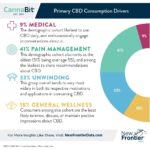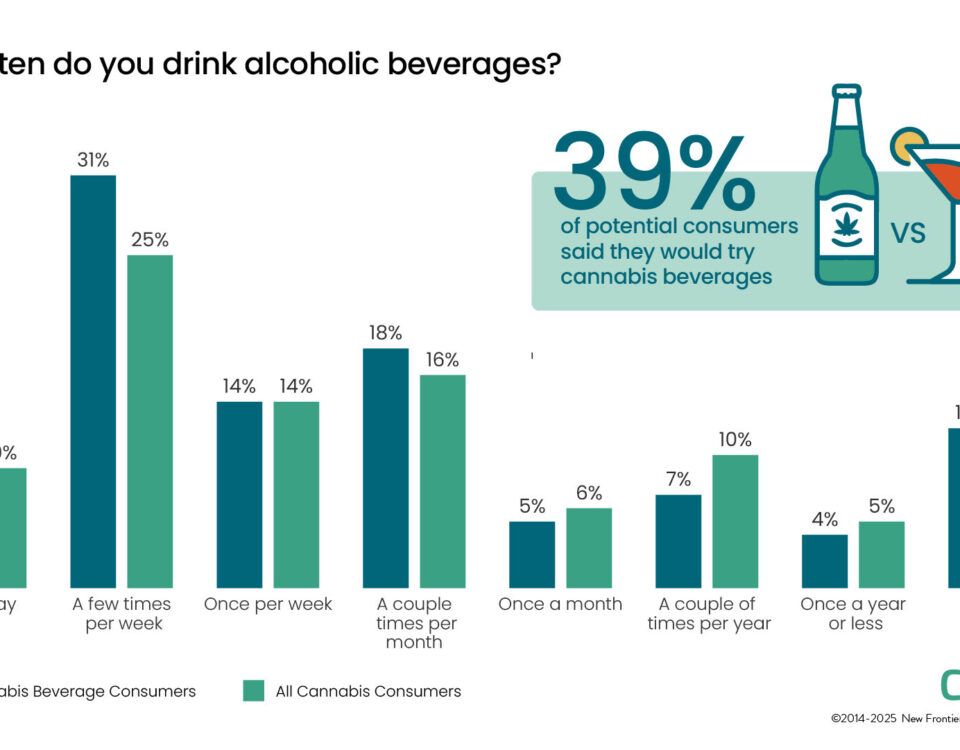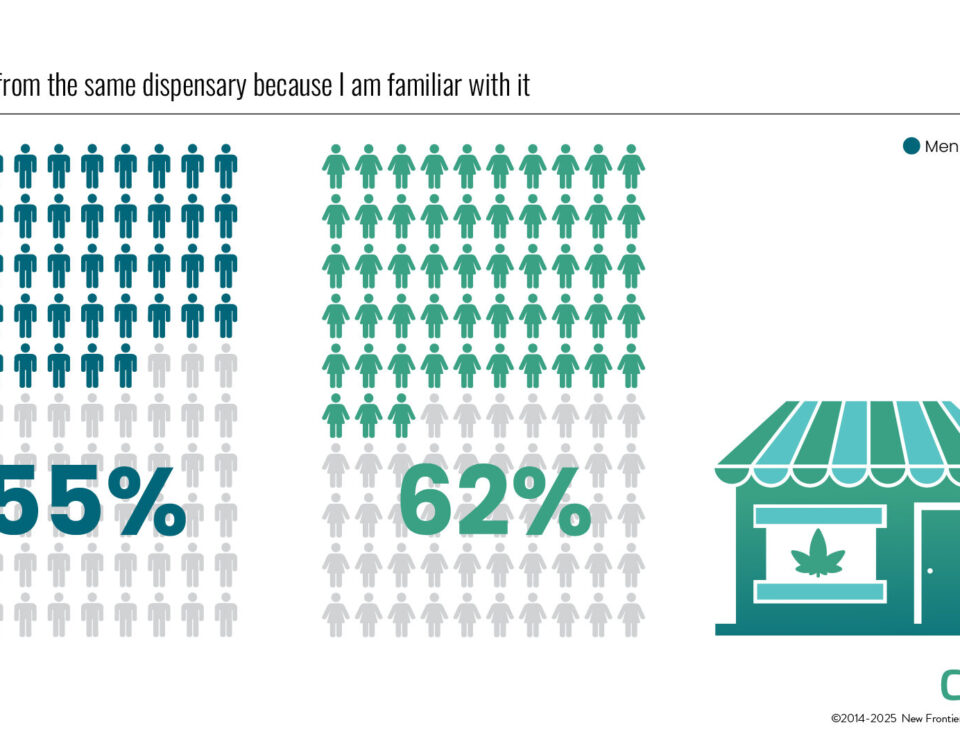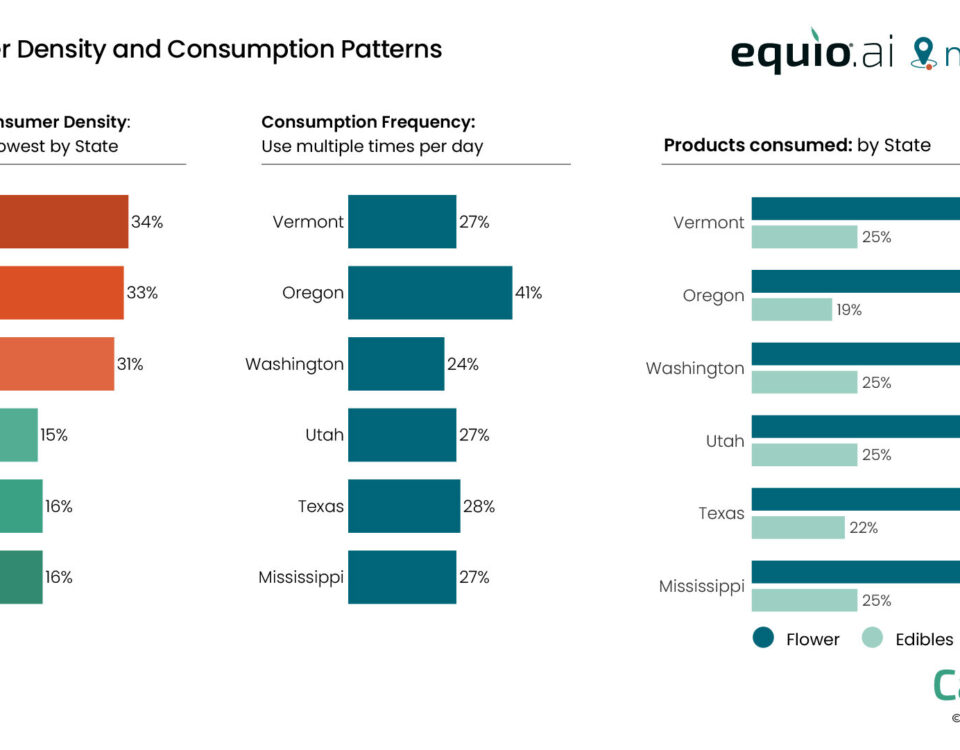Social Connections Keenly Influence CBD Consumers’ Behavior

New Research Reveals 30% of CBD Consumers Expect to Increase Usage
May 27, 2021
Who Is Driving CBD Consumption? Four Groups Define Sales
June 7, 2021By Josh Adams, Ph.D., Senior Industry Analyst, New Frontier Data
CBD has become a popular topic, and people are talking and sharing opinions with others around them. Conversational interactions are fundamental in shaping consumer perceptions and beliefs, and indeed the primacy of social networks is a key element both for spreading awareness about CBD and spurring first-time consumers to try it.
In New Frontier Data’s latest report, The U.S. CBD Consumer Series, Vol. IV: Social Influences, the importance of social influences on CBD consumption is examined along with how such influences differ among consumers and nonconsumers.
Consumers are more likely to have conversations with friends and family about CBD, and to seek information from other sources to learn about it. The combination of being socially engaged, combined with being actively motivated to gain information, clearly differentiates CBD consumers from nonconsumers.
The influence of close relations’ recommendations is readily apparent when comparing consumers to nonconsumers. More than half (54%) of consumers say that friends have recommended that they try CBD, compared to 15% of nonconsumers doing so. Similarly, 38% of consumers report that a family member has recommended CBD, while only 8% of nonconsumers have received a family recommendation. As CBD is relatively new to the market, many consumers lack familiarity with its uses, effects, or modes of consumption. Learning about CBD products from trusted personal sources is important for creating a sense of openness and willingness to try a novel product.
Predictably enough, CBD consumers are more likely than are nonconsumers both to seek out information about it, and from a broader array of sources. While 61% of consumers cite close relations (i.e., friends and family) as their primary means of information, nonconsumers are most likely (at 34%) to cite comparatively impersonal and indifferent television news coverage. Additionally, while nonconsumers indicate their getting some information about CBD from their social networks, they conversely rely on friends and family (29%) or social media (39%) far less often than do CBD consumers (61% and 52%, respectively).
Those differences indicate the fundamental role which an individual’s social network performs in terms of information acquisition and decision-making. The communication of a customer’s overall satisfaction regarding CBD’s efficacy and benefits enables existing consumers to encourage new consumers. As such, customer satisfaction is not just about meeting the needs of current consumers, but also about delivering a product which both are pleases them and inspires recommendations to others. For products and brands in an emerging industry, such avenues of consumer engagement, education, and conversion can prove to be invaluable.
New Frontier Data’s earlier report, U.S. CBD Consumer Report: Archetypes and Preferences, is part of a series of ongoing CBD research examining the U.S. and global marketplaces to provide in-depth insights to the increasingly expanding segment of the legal cannabis industry.




